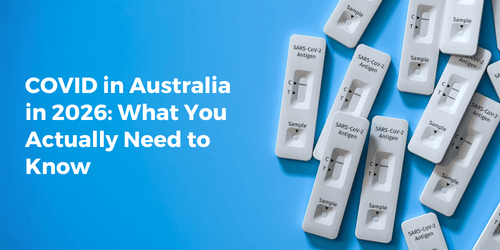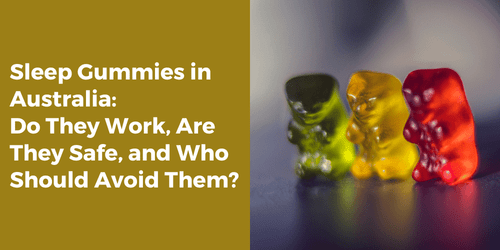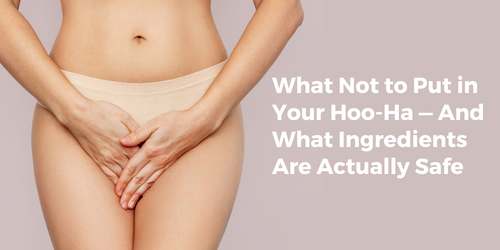What Is Methylene Blue and Why Is It Gaining Attention for Health?
Methylene blue (MB) is a bright blue liquid that has been used in medicine since the 1980s. While it may look unusual, it has caught the attention of scientists, doctors, and even biohackers for its unique properties. But what exactly is methylene blue, and is it something you should consider for your health and wellbeing?
Let’s explore what it is, how it works, and why some people are talking about it — backed by science and explained in simple terms.
Important Note: Methylene blue is not a cure or treatment for any illness unless prescribed by a doctor. This article is for informational purposes only and does not substitute professional medical advice.
1. What Is Methylene Blue?
Methylene blue was first created in 1876 as a fabric dye (Berneth, 2008). But scientists like Robert Koch and Paul Ehrlich quickly realised it had powerful medical potential. It was one of the first dyes used in microscopes to stain bacteria, which helped doctors better study infections (Ehrlich, 1881; Oz et al., 2011).
Soon after, methylene blue was used to treat malaria — making it one of the first synthetic medicines ever used in humans (Guttmann & Ehrlich, 1891). Before antibiotics like penicillin, methylene blue was commonly used as an antiseptic in medical care (Oz et al., 2011).
Today, researchers are exploring other uses for methylene blue in the brain, cells, and even energy production. It is often sold in purified forms — like the USP-grade methylene blue solution — which is safe for human use when taken appropriately and with guidance.
2. Why Is Methylene Blue Making a Comeback?
Methylene blue has gone viral—and not just for its vibrant blue hue. Its recent surge in popularity ramped up when Robert F. Kennedy Jr. was seen mid-flight adding a bright-blue liquid to his drink. That moment exploded online, igniting a wave of conversations. Soon, Google searches for “methylene blue” skyrocketed, and TikTok influencers began touting its benefits for brain support, focus, and healthy aging.
But the biggest spike came after The Joe Rogan Experience featured episodes with Mel Gibson and Chase Hughes - revealing that they personally, or others close to them, experienced profound health benefits from Methylene Blue. Following those episodes, searches for medical-grade methylene blue exploded—Blootropic emerged as the go-to Australian brand.
3. How Does Methylene Blue Work in the Body?
Your body’s cells create energy in little structures called mitochondria. Think of mitochondria like tiny power plants inside your cells. Methylene blue helps these power plants work better.
It does this by:
- Helping your cells use oxygen more efficiently
- Reducing stress from harmful molecules called “free radicals”
- Supporting cell repair and energy production
This is why researchers believe methylene blue may
- Help mitochondria work more efficiently
- Support energy production (ATP)
- Protect cells from stress caused by oxidation
- Cross the blood–brain barrier to support brain cells
These effects are still being studied, but researchers believe this may be why some people report better focus and energy after using it.
4. Medical Uses of Methylene Blue
Methylene blue is approved for treating:
- Methemoglobinemia (a condition where blood can't carry oxygen properly)
- Cyanide poisoning (in emergency care)
- Used during some surgeries to help doctors see tissues better
It is also being studied for:
- Alzheimer’s disease
- Parkinson’s disease
- Infections and inflammation
Note: These studies are early-stage, and methylene blue should not be used to treat these conditions without medical advice.
5. Why Biohackers and Wellness Seekers Use Methylene Blue
In the biohacking world, people are always looking for ways to boost their brain and body performance. Methylene blue has gained popularity because of its potential to:
- Improve focus and memory
- Reduce brain fog
- Increase energy
Some users combine it with light therapy or other nootropic supplements. However, these uses are not officially approved by health authorities. Always speak with a health professional before trying it.
6. What Do Studies Say About Methylene Blue?
Research shows that methylene blue can:
- Help cells make more energy (ATP)
- Cross the blood–brain barrier (meaning it can enter brain tissue)
- Act as a strong antioxidant, protecting brain and nerve cells
A 2021 review published in the Journal of Neural Transmission highlighted that low doses may support brain function. However, the Therapeutic Goods Administration (TGA) has not yet reviewed methylene blue for cognitive enhancement or mental health in Australia.
7. Forms of Methylene Blue: What Should You Use?
Not all methylene blue products are the same. Some are made for industrial use and are Not all methylene blue products are created equal. Some are made for industrial purposes, while others—like certain aquatic versions—are intended for fish tank treatments. These types are not safe for human consumption.
Here’s what to look for:
|
Type |
Safe for Human Use? |
Use Case |
|
Industrial Grade |
❌ No |
Textile dye, lab chemicals |
|
USP Grade (Pharmaceutical) |
✅ Yes |
Purified for nootropic benefits and other human-safe applications* |
The Blootropic USP-Grade Methylene Blue is an ultra-pure, pharmaceutical-grade option designed specifically for safe human use—not for industrial or aquatic purposes. Always check the label and buy only from trusted, verified sources.
*Disclaimer: Nootropic benefits results may vary. Always consult a qualified healthcare professional before use.
8. Is Methylene Blue Safe?
When used correctly and in the right dose, methylene blue is generally safe. However, it may cause side effects such as:
- Blue urine or stool (harmless but surprising!)
- Mild nausea or headache at higher doses
- Serious interactions if combined with antidepressants (SSRIs)
Do NOT use methylene blue if you:
- Are pregnant or breastfeeding
- Take antidepressants or antipsychotic medication
- Have kidney or liver issues without medical supervision
Always start low and follow your health professional’s advice.
9. How Much Methylene Blue Should You Take?
There is no one-size-fits-all dosage for methylene blue. The amount can vary based on your body weight, health status, and how your body responds.
To help you get started, Blootropic offers a handy dosage calculator that provides a suggested amount based on your weight:
Click here to use the dosage calculator
General Tips for Use:
- You can take methylene blue on an empty stomach.
- For better taste, mix it with 50 mL of juice or flavoured drink.
- To avoid blue staining in the mouth, use a straw and rinse your mouth with water afterward.
- Start with a trial dose to see how your body responds before adjusting your intake.
⚠️ Please note: Dosage recommendations are general and not a substitute for medical advice. Always do your own research and talk to a healthcare provider before starting a new supplement.
Storage advice:
- Keep it in a cool, dark place.
- Avoid skin or surface contact to prevent staining.
- Keep out of reach of children.
- Refrigeration is not required.
10. What to Look for When Buying Methylene Blue
Here’s a quick checklist when shopping for methylene blue:
- ✅ USP or pharmaceutical grade
- ✅ Free from additives, solvents, and heavy metals
- ✅ Clearly labeled ingredients
- ✅ Comes in a UV-protected bottle
- ✅ Transparent about sourcing and testing
Blootropic’s Methylene Blue checks all these boxes, offering a clean, high-purity formula you can trust.
11. Warnings and Precautions Before Using Methylene Blue
Methylene blue may look simple — but it's a powerful compound that should be used with care. Before you buy or try it, there are some important safety tips to know.
A. Not All Methylene Blue Is Safe
Only purchase USP-grade or pharmaceutical-grade methylene blue that is labelled for human use. Industrial or lab-grade versions may contain harmful impurities like:
- Heavy metals
- Solvents
- Dyes not meant for human consumption
⚠️ Avoid any methylene blue that doesn’t clearly state its grade or testing information.
Unlike many unverified sellers, Blootropic openly provides detailed lab test results to show the safety and quality of its methylene blue.
Each batch is:
- Independently tested in Brisbane to confirm product integrity
- Screened for 24 heavy metals under USP <232> safety standards
- Verified for methylene blue concentration and purity
- Checked for microbial contamination
You can view the latest lab results here:
Download Blootropic Methylene Blue Lab Results
B. It Can Interact With Medicines and Supplements
Methylene blue affects the way your brain and body use chemicals like serotonin, which means it can be dangerous when combined with certain medications.
Do not use methylene blue if you are taking:
- SSRI antidepressants (like sertraline/Zoloft, fluoxetine/Prozac, escitalopram/Lexapro)
- MAO inhibitors (like phenelzine or tranylcypromine)
- Stimulants (like methylphenidate/Ritalin or dextroamphetamine)
- Parkinson’s medications (like selegiline)
- Antipsychotics
- Opioid pain medications combined with antidepressants (e.g. tramadol + SSRIs)
Mixing methylene blue with these can lead to a serious condition called serotonin syndrome, which can be life-threatening if not treated.
C. Caution With Supplements
If you're already taking other supplements that affect brain chemistry or blood pressure, be cautious. Examples include:
- St. John’s Wort
- 5-HTP
- L-tryptophan
- Ginkgo biloba
- High-dose B vitamins
These may interact or amplify effects in unpredictable ways.
D. Speak to a Health Professional First
Because methylene blue can affect your brain and cell function, it’s important to:
- Get advice from a GP or health practitioner
- Mention all the medicines and supplements you're taking
- Start with a trial dose and track how your body reacts
E. Not Suitable for Certain Groups
Avoid methylene blue if you:
- Are pregnant or breastfeeding
- Have kidney or liver conditions
- Are under 18 without medical guidance
- Have G6PD deficiency, a rare enzyme disorder that can cause serious side effects when exposed to certain drugs, including methylene blue
F. Choosing the Right Product
When buying methylene blue, always:
- Check the label says USP-grade
- Look for heavy metal and purity testing
- Buy from a trusted brand that discloses ingredients and directions
The Blootropic USP-Grade Methylene Blue is specifically formulated for wellness use, with no solvents or harsh additives — and comes with usage tips to help you get started safely.
12. What People Say About Methylene Blue
Popular Keywords & Phrases from our customer reviews:
- Energy – overwhelmingly mentioned as “boosted energy,” “more energy,” “steady energy” throughout.
- Focus / Mental clarity / Cognitive function – terms like "focus," "brain fog," "clear mind," "mental clarity," and "cognitive shift" appear in nearly every review.
- Mood / Positivity / Calm – many mention uplifted mood, reduced anxiety, calmness, and positivity.
FAQs About Methylene Blue
- What effects can I expect from taking methylene blue?
Many users say they feel:
- Smooth, caffeine-free energy
- Sharper focus
- Improved short-term memory
- Brighter mood
- Blue or green urine — which is completely normal!
These effects vary by person. It’s best to start with a small trial dose to observe how your body responds.
- How do I take it?
- You can take it on an empty stomach.
- Mix with 50 mL of juice or flavoured drink for taste.
- Use a straw to avoid mouth staining, then rinse with water.
- Some follow a cycle like 5 days on, 2 days off.
- What’s the best time of day to take methylene blue?
Morning is ideal for most users. It provides a light energy boost that lasts throughout the day. Some people split the dose between morning and early afternoon. It generally does not interfere with sleep.
- How fast does it start working?
Users often feel:
- Sharper focus within 30 minutes
- Improved mood or energy within 1–2 hours
Results can vary depending on your body and dosage.
- Can it interact with medications or supplements?
Yes. Do not use methylene blue with:
- SSRIs, SNRIs, or MAOIs (serious interaction risk)
- Adrenaline-based medications or drugs affecting serotonin/dopamine
- CoQ10 or Idebenone (may reduce its effect)
⚠️ Always check with your healthcare provider before combining supplements.
- Is it safe for pregnant women or children?
No. It is not recommended during pregnancy or breastfeeding.
Children should only take it under the guidance of a qualified health professional.
- Is methylene blue addictive?
No — it is not known to be habit-forming or addictive.
- Can I take it every day?
That depends on your health goals. Some people use it occasionally, while others follow a regular cycle (e.g. 5 days on, 2 days off). Daily use should only be done under professional advice.
- Can I mix it with other supplements?
Maybe — but always check with your doctor first. Methylene blue can interact with some medications and supplements, especially antidepressants.
- Will methylene blue turn my pee blue?
Yes — and that’s completely normal. It's just your body flushing out the colour, not a sign of anything harmful.
- Is Blootropic’s methylene blue tested for safety?
Yes. Each batch is tested at a certified lab in Brisbane for:
- 24 heavy metals (according to USP 232)
- Microbes and bacteria
- Accurate strength and purity
You’re getting clean, high-quality methylene blue designed for human use.
- How long does one bottle last?
- A 50 mL bottle lasts around 6 weeks
- A 100 mL bottle lasts around 12 weeks
(based on daily use — individual dosage varies)
Use the dosage calculator to work out your personalised intake.
- How should I store it?
- Store in a cool, dry, dark place (15–20 °C)
- No need to refrigerate
- Keep sealed when not in use
- Use within 2 years of opening
- Typically 1 x 100ml bottle will last 2-3 months
Methylene blue is an exciting compound with a long history in science and medicine. While it shows promise in boosting cell and brain function, it’s important to use it responsibly and safely.
If you’re curious, consider trying a high-quality option like the USP-grade from Blootropic. Start with a low dose and always talk to your healthcare provider first.
Disclaimer: This article is for informational purposes only and does not substitute professional medical advice. Please consult a healthcare professional before starting any new supplement or treatment.




